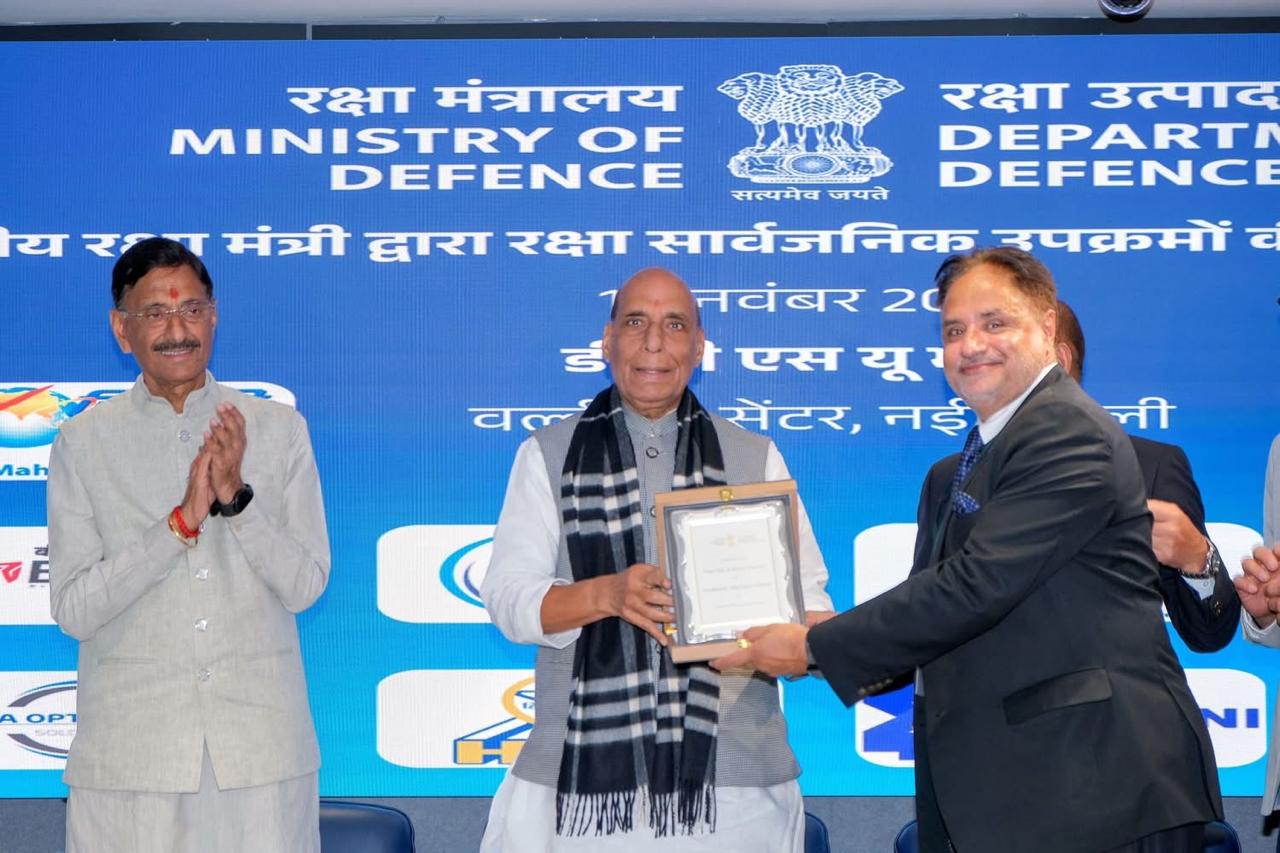India’s Ministry of Defence on Monday granted Mini Ratna Category-I status to Hindustan Shipyard Limited (HSL), adding the Visakhapatnam-based shipbuilder to the list of public enterprises with limited financial and administrative autonomy. The move forms part of a wider institutional restructuring effort that Defence Minister Rajnath Singh described as the beginning of the “Year of Reforms” for the country’s 16 Defence Public Sector Undertakings (DPSUs).
The certificate was handed over to HSL Chairman and Managing Director, Commodore Girideep Singh, during the inauguration of the new Defence PSU Bhavan at the World Trade Centre in New Delhi—a facility intended to bring all DPSUs under one roof to encourage coordination and policy alignment. The ceremony coincided with the annual performance review of state-owned defence firms, covering financial results, indigenisation metrics, and export performance.
The Mini Ratna classification allows qualifying PSUs to take investment decisions of up to ₹500 crore without direct government approval, provided they have recorded consistent profitability. HSL’s elevation follows a decade of gradual restructuring after years of operating losses, and reflects improvements in its order execution and ship repair operations. However, the shipyard remains among the smaller entities in India’s defence manufacturing portfolio, with limited exposure beyond naval platforms.
Declaring 2025 as the “Year of Reforms,” Singh said the government aims to accelerate R&D and promote self-reliance in defence manufacturing under the Aatmanirbhar Bharat framework. He also launched two initiatives: HAL’s R&D Manual to institutionalise innovation processes within Hindustan Aeronautics Limited, and SWAYAM, an initiative promoting sustainable and green defence manufacturing practices.
The government’s effort to empower PSUs through selective autonomy has been a balancing act between commercial flexibility and bureaucratic oversight. While Mini Ratna status grants some freedom in forming partnerships and managing finances, strategic decision-making and capital expenditure still remain subject to ministerial review.
For HSL, the recognition is incremental rather than transformational—it acknowledges operational recovery but does not fundamentally alter its position within the defence hierarchy. The success of such reforms will depend on whether institutional autonomy translates into genuine innovation and competitiveness, rather than remaining a procedural milestone in the public-sector rulebook.

